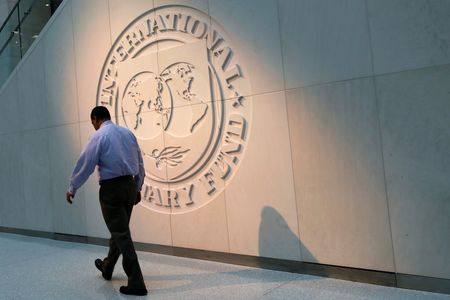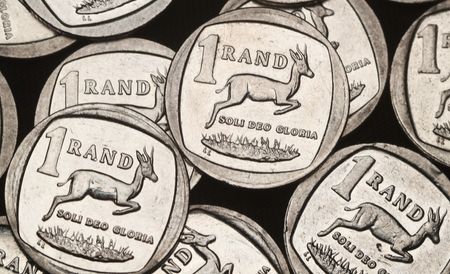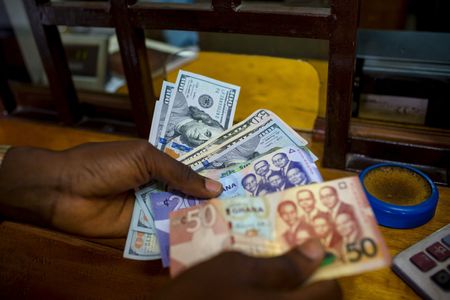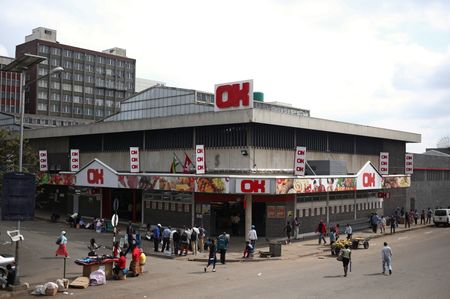By Duncan Miriri and Miguel Gomes
NAIROBI/LUANDA (Reuters) -A $200 million margin call by JPMorgan on Angola’s $1 billion loan at the height of the global selloff of risky assets has exposed the high costs of unorthodox financing heavily indebted African issuers have been turning to, analysts say.
Africa’s debt has soared to more than $1.8 trillion, the African Development Bank said, leading to three sovereign debt defaults in the past four years and unconventional financing deals as governments wrestle with high repayments.
Senegal, Gabon and Cameroon are among those who have resorted to so-called “off-screen” deals like private bond placements in recent months, as heavy debt burdens and political uncertainty in some cases limit their access to regular markets.
“We are going to see more of these transactions in the foreseeable future, especially if regular and conventional Eurobond market access remains constrained for single B and low-rated countries,” said Samir Gadio, head of Africa strategy at Standard Chartered in London.
The yield on bonds Senegal privately placed last year is nearly 100 basis points higher than on its 2031 Eurobond, meaning it is paying more for the new debt, illustrating the costs to countries that are already struggling to fund essential sectors like health and education. Loans often come at a 150-200 bps premium over existing bonds, analysts said.
Southern African crude oil exporter Angola, which is saddled with high external debt to various creditors, including oil-backed loans from China, has become emblematic of the dilemma many governments in the region face.
It entered a one-year Total Return Swap deal with JPMorgan last December, a rarely used financing instrument, backed by freshly issued Angolan government dollar bonds.
The government did not actually raise cash with the $1.9 billion bonds. It used them as collateral for two tranches of $600 million and $400 million loan financing from JPMorgan, to avoid adding the debt to its books.
Its Eurobonds tumbled as investors dumped assets perceived as risky following U.S. President Donald Trump’s announcement of sweeping trade tariffs.
The price of Angola’s 2030 bond, which serves as collateral for the loan from JPMorgan, fell from 100 cents on the dollar at the end of March to a low of 86 cents during the selloff, before recovering to 95 cents.
“The risk with this sort of transaction is that if there is a market shock, then the margin calls could become a burden,” said Standard Chartered’s Gadio.
STATE BUDGET HIT
Angola’s government sought to portray its prompt payment of the $200 million cash demand by JPMorgan for additional security as reassurance for markets.
“We were ready to present the money. I think it’s a strong sign,” Finance Minister Vera Daves de Sousa told Reuters, adding she was looking at the structure of the deal to stave off another margin call.
JPMorgan declined to comment.
Despite the minister’s assessment, Sub-Saharan Africa’s second biggest crude exporter is already paying a heavy price for its debt.
Government spending on social services has fallen by 55% since 2015, said Tim Jones, policy director at London-based Debt Justice, a campaign group.
Half the government’s budget was going towards debt repayments, said Sérgio Calundungo, coordinator of Angolan think-tank OPSA.
This makes it harder to raise money for new infrastructure projects, such as the U.S.-backed Lobito transport corridor linking mineral-rich Democratic Republic of the Congo and Zambia to Angola’s Atlantic coast.
“The government’s debt shows signs of not being sustainable, as budget deficit levels have been high, while real GDP growth has been anaemic and the interest rates faced by the government have been high,” said Manuel Neto Costa, who served briefly as the economy minister in 2019/20.
Angola said the slide in oil prices has increased the likelihood of a new lending deal with the IMF whose staff are in the country this week. The IMF declined to provide details on potential outcomes.
Analysts are concerned about its ability to manage its debt even if an IMF programme materialises and oil prices recover.
“Poor fiscal fundamentals mean that sovereign default fears are likely to stay elevated,” David Omojomolo, Africa economist at investment consultancy Capital Economics, said in a note to clients.
(Reporting by Duncan Miriri in Nairobi and Miguel Gomes in Luanda, Additional reporting by Karin Strohecker in London; Editing by Emelia Sithole-Matarise)








